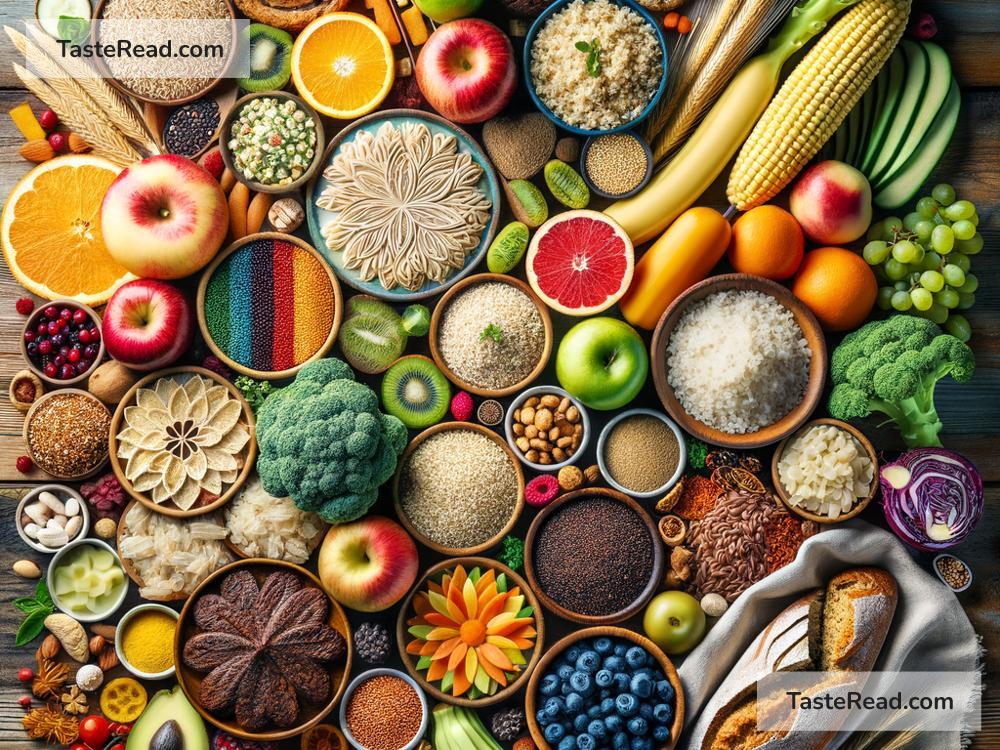Unraveling the Gluten-Free Diet: Myths and Facts Unveiled
In recent years, the gluten-free diet has become a buzzword in the realm of health and nutrition, sparking curiosity, concern, and for some, a complete lifestyle overhaul. But, what really lies behind this trend? Is it a miraculous solution for better health and wellness, or just another dietary fad surrounded by myths? Today, let’s embark on a journey to explore the truths and fallacies about gluten-free diets, and provide you with the knowledge you need to make informed dietary choices.
What is Gluten?
Before we dive into debunking the myths and stating the facts, let’s understand what gluten is. Gluten is a family of proteins found in grains such as wheat, barley, and rye. It’s essentially the glue that holds food together, maintaining its shape and giving bread its chewy texture.
Myth 1: Gluten-Free Diets are Healthier for Everyone
One of the most widespread myths is that a gluten-free diet is healthier for all individuals. The fact, however, is that gluten-free diets are essential for people with certain health conditions like celiac disease, wheat allergy, or non-celiac gluten sensitivity. For these individuals, consuming gluten can lead to various health issues ranging from digestive problems to severe allergic reactions.
For the general population without such conditions, there’s no scientific evidence to suggest that a gluten-free diet offers additional health benefits. It’s more about choosing healthy, whole foods rather than just excluding gluten.
Myth 2: Gluten-Free Equals Weight Loss
Another common misconception is that cutting out gluten automatically leads to weight loss. This is not inherently true. Weight loss on a gluten-free diet can occur from reducing processed foods and opting for fruits, vegetables, and lean proteins. However, simply replacing regular processed foods with gluten-free alternatives, which often contain high amounts of sugar and fat to mimic the texture and flavor of gluten, may actually lead to weight gain.
Fact 1: Gluten-Free Products Aren’t Always Healthier
This leads us to an important fact: gluten-free products aren’t necessarily healthier than their gluten-containing counterparts. Many gluten-free options are highly processed and can be lacking in essential nutrients found in whole grains containing gluten, such as fiber, iron, and B vitamins. Reading labels and focusing on naturally gluten-free whole foods is key.
Fact 2: Gluten-Free Diets Require Careful Planning
Adopting a gluten-free diet requires careful planning to ensure nutritional needs are met. Gluten-free diets can lack certain nutrients, making it crucial for individuals to find alternative sources of these nutrients. Foods like quinoa, brown rice, fruits, vegetables, and lean proteins can form a nutritious, gluten-free diet. Supplements may also be necessary, but it’s best to consult with a healthcare professional before starting any new supplement regimen.
Myth 3: All Grains Contain Gluten
It’s a common misconception that all grains contain gluten, but this isn’t the case. There are several naturally gluten-free grains, including rice, corn, quinoa, millet, and amaranth. These grains offer varied and nutritious options for those on a gluten-free diet.
The Bottom Line
While navigating the gluten-free landscape, the key takeaway is that gluten-free diets are not a one-size-fits-all solution. For individuals with celiac disease or gluten sensitivity, avoiding gluten is crucial for their health. However, for the general population, a balanced diet rich in fruits, vegetables, whole grains, and lean proteins is the cornerstone of good health. Gluten or no gluten, focusing on whole, minimally processed foods is the real secret to a healthy diet.
Before making any drastic changes to your diet, it’s always best to consult with a healthcare professional or a dietitian. They can provide guidance tailored to your specific health needs and help you navigate the world of nutrition with confidence. Remember, the goal is not just to eliminate gluten but to embrace a lifestyle that prioritizes overall health and well-being. Let’s make informed choices and foster a relationship with food that nurtures our bodies and souls.


